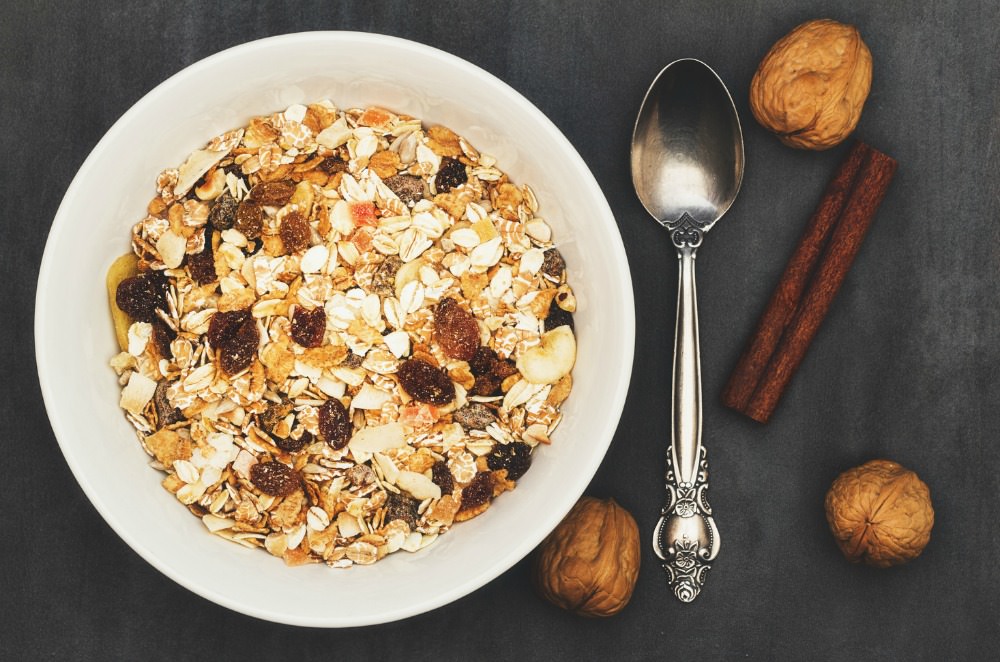
One of the trickiest aspects of implementing the traditional method of soaked oatmeal in order to maximize nutrition, eliminate anti-nutrients, and considerably improve digestibility is getting used to the slightly sour taste.
Some of you are even going so far as to rinse the soaked oatmeal after cooking, for example, in an attempt to lessen that slightly sour taste that some find unpleasant. Unfortunately, these efforts are not working very well for those of you that have emailed me about it.
I’ve got a better idea!
In the video below, I talk to you about the single easy step required to quickly adjust your family to soaked oatmeal.
I also talk to you about the huge benefit to your backside of soaked oatmeal and tell you the story about my 3 kids and their experience eating unsoaked oatmeal versus soaked oatmeal.
If you ever doubted the need for soaked oatmeal before, after hearing this story, you may find that you change your mind!
For those of you who want to take the plunge and prepare your first batch of soaked oatmeal, check out my recipe plus video lesson on preparing overnight oats.
How you cook the oatmeal is the critical step that most people completely miss and which determines how much nourishment and benefit you will actually derive from the experience.
Preparation also determines how long the oatmeal will fill you up. What good is a bowl of oatmeal if you are hungry again and ready for a donut by 10 am?
Preparing your oatmeal the traditional way as practiced for centuries by ancestral societies will take a little planning on your part, but you will be greatly rewarded with a much more nourishing, digestible breakfast that will stay with you all the way to lunchtime!
Traditional peoples knew through observation that grains were very hard to digest and caused health problems over time for those who consumed them without careful preparation.
Throwing out those toxic boxed breakfast cereals that are at least twice as expensive per serving and replacing them with a simple, nutritious bowl of soaked oatmeal will also help your food budget considerably with no loss in pleasure or enjoyment particularly on chilly winter mornings!
How to Easily Adjust to the Taste of Soaked Oatmeal
In this short video, I explain how to adjust to the unique flavor of overnight oats without any loss of enjoyment.
The process simply involves soaking with water only at first and gradually moving toward the most beneficial soaking medium. The speed of transition depends completely on your unique set of taste buds.
More Information
Soaked Oatmeal Benefits Without the Soaking?
Why ALL Boxed Breakfast Cereal is Toxic








Hi Sarah,
I’m allergic to dairy. Will coconut (or almond) yogurt work? Also, If I buy sprouted oats, is there any benefit to soaking them? Will it get rid of more of the phytic acid? Or does sprouting get rid of all of the phytic acid… I’ve read it’s hard to reduce the phytic acid in oats?
Thank you!
If you are allergic to dairy, it is best to soak with water and a small amount of lemon juice. This post/video details amounts. https://www.thehealthyhomeeconomist.com/video-how-to-cook-oatmeal-the-right-way/
Sprouting is not a perfect substitute for soaking, but they both reduce anti-nutrients considerably, so I consider them both effective. If you are extremely sensitive to anti-nutrients and have weak digestion, best to also soak sprouted oats before cooking. That will make the oatmeal the most digestible possible.
I don’t find oatmeal filling at all It is well fermented when I soak it. When I heat it, we add in coconut oil (genetically can’t do dairy). I’m extremely hungry within an hour or two after eating it. My daughter has this same issue, and is asking me what else she can eat an within an hour after eating a HUGE serving of oatmeal.
Sorry, I forgot to add this question…my kids and I are definitely ones that cannot hack the sour flavor when soaking with lemon juice or vinegar- and honestly, it is not a “slight” sour taste. It is completely OVERWHELMING. In fact, the unanimous consensus was, “nasty”. 🙁 However, I do notice that if I use raw whey that I harvested ASAP it is not that sour. It is in fact just slightly sour and very tolerable. Most times when I make whey and let it go too long it can be too sour and/or VERY bitter (even worse), which is a waste because it never gets used when it tastes like that. So, my question is this: If I use whey that has NOT gotten to the point of being super sour or bitter, will it still do what it is supposed to do?
Yes, fresh liquid whey is fine. It does tend to get more sour with time, but if you like the milder taste when it is first made, that is fine!
Hi Sarah, you mentioned that you talked about “the huge benefit to your backside of soaked oatmeal” in the video, but I never heard you mention anything about anyone’s “backside”. Did I just miss it?
Hello, are there any other kinds of acid I could use? One of my sons is allergic to both dairy and citrus, and another to corn, rice, and apples and grape (so no vinegar). Would kombucha work or would that be gross? What about some other juice that has a little acidity, like apricot (can’t use cranberry either:-( thanks!
Very strong kombucha vinegar would work. Haven’t tried it to know the results though.
Can the soaked oats be rinsed before cooking? I use steel cut oats. Do they require longer soaking time?